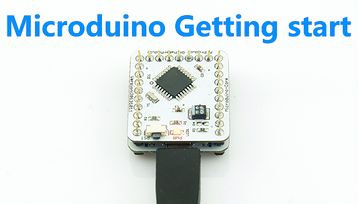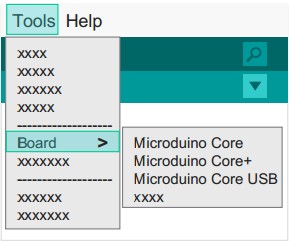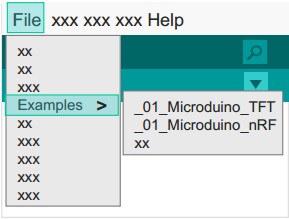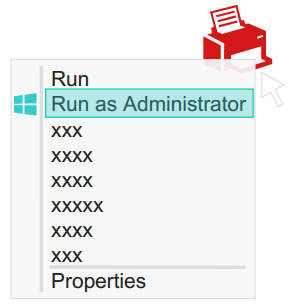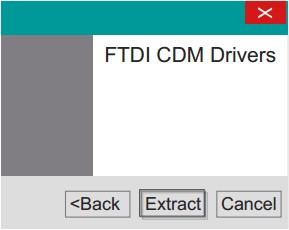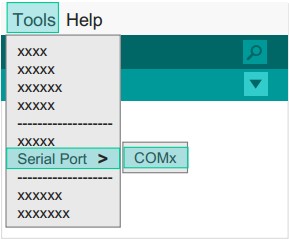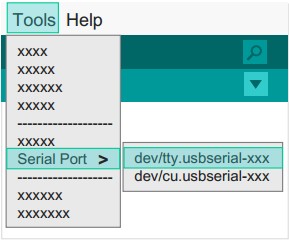“AVR Core: Getting Started”的版本间的差异
| 第1行: | 第1行: | ||
| − | {{Language|Microduino | + | {{Language|Microduino Getting Started}} |
{| style="width: 800px;" | {| style="width: 800px;" | ||
| 第75行: | 第75行: | ||
'''*Windows'''<br> | '''*Windows'''<br> | ||
*Automatic installation | *Automatic installation | ||
| − | :1. Unzip get "\ Windows \ Automatic" folder contents | + | :1. Unzip get "\ Windows \ Automatic" folder contents. |
| − | :2. Run "CDM XX WHQL Certified.exe" as administrator | + | :2. Run "CDM XX WHQL Certified.exe" as administrator. |
| − | :3. Follow the prompts to complete the installation | + | :3. Follow the prompts to complete the installation. |
*Manual installation | *Manual installation | ||
:1. Advanced users may choose to install manually: | :1. Advanced users may choose to install manually: | ||
| 第101行: | 第101行: | ||
'''If there is damage or missing signature file when prompted, you need to disable the digital signature system installation in windows 8。''' | '''If there is damage or missing signature file when prompted, you need to disable the digital signature system installation in windows 8。''' | ||
1.Turn off the check. | 1.Turn off the check. | ||
| − | 2.Hold the shift key while clicking on Restart | + | 2.Hold the shift key while clicking on Restart. |
| − | 3.Select Troubleshoot > Advanced Options > Startup Settings > Restart | + | 3.Select Troubleshoot > Advanced Options > Startup Settings > Restart. |
4.After Restart select option 7. <br> | 4.After Restart select option 7. <br> | ||
by: [[http://answers.microsoft.com/en-us/windows/forum/windows_8-hardware/how-to-install-a-driver-that-does-not-contain/7c3f299b-3483-4c96-8c44-87c7451af222 Microsoft Answers]] | by: [[http://answers.microsoft.com/en-us/windows/forum/windows_8-hardware/how-to-install-a-driver-that-does-not-contain/7c3f299b-3483-4c96-8c44-87c7451af222 Microsoft Answers]] | ||
| − | ==Step 4: Connecting | + | ==Step 4: Connecting Hardware== |
| − | *Use Micro-USB cable to connect | + | *Use a Micro-USB cable to connect a Microduino-USBTTL to your PC / Mac: |
| 第116行: | 第116行: | ||
| | | | ||
'''*Windows''' | '''*Windows''' | ||
| − | + | :1. Open the IDE. Go to "Tools" > "Serial Port". | |
| − | + | :2. Select "COMXX". | |
|| | || | ||
[[File:microduinoGettingStart5.jpg|289px|right|thumb]] | [[File:microduinoGettingStart5.jpg|289px|right|thumb]] | ||
| 第127行: | 第127行: | ||
| | | | ||
'''*Mac OS''' | '''*Mac OS''' | ||
| − | + | :1. Open the IDE, in the menu "Tools" in the "Serial Port". | |
| − | + | :2. Select "dev / tty.usbserial-XX". | |
|| | || | ||
[[File:microduinoGettingStart6.jpg|289px|right|thumb]] | [[File:microduinoGettingStart6.jpg|289px|right|thumb]] | ||
| 第139行: | 第139行: | ||
*'''[[Install Arduino IDE Microduino Hardware Support Package]]''' | *'''[[Install Arduino IDE Microduino Hardware Support Package]]''' | ||
| − | *'''[[Install Arduino IDE Microduino | + | *'''[[Install Arduino IDE Microduino Library Support Package]]''' |
|} | |} | ||
2015年6月24日 (三) 17:09的版本
| Language | English |
|---|
|
目录Step 1: Arduino IDE Download*Arduino compatible, first install the basic IDE
Step 2: Verify IDE
Step 3: Drivers*After the IDE is configured, install the drivers
Note: If there is damage or missing signature file when prompted, you need to disable the digital signature system installation in windows 8。 1.Turn off the check. 2.Hold the shift key while clicking on Restart. 3.Select Troubleshoot > Advanced Options > Startup Settings > Restart. 4.After Restart select option 7. Step 4: Connecting Hardware
Appendix |
